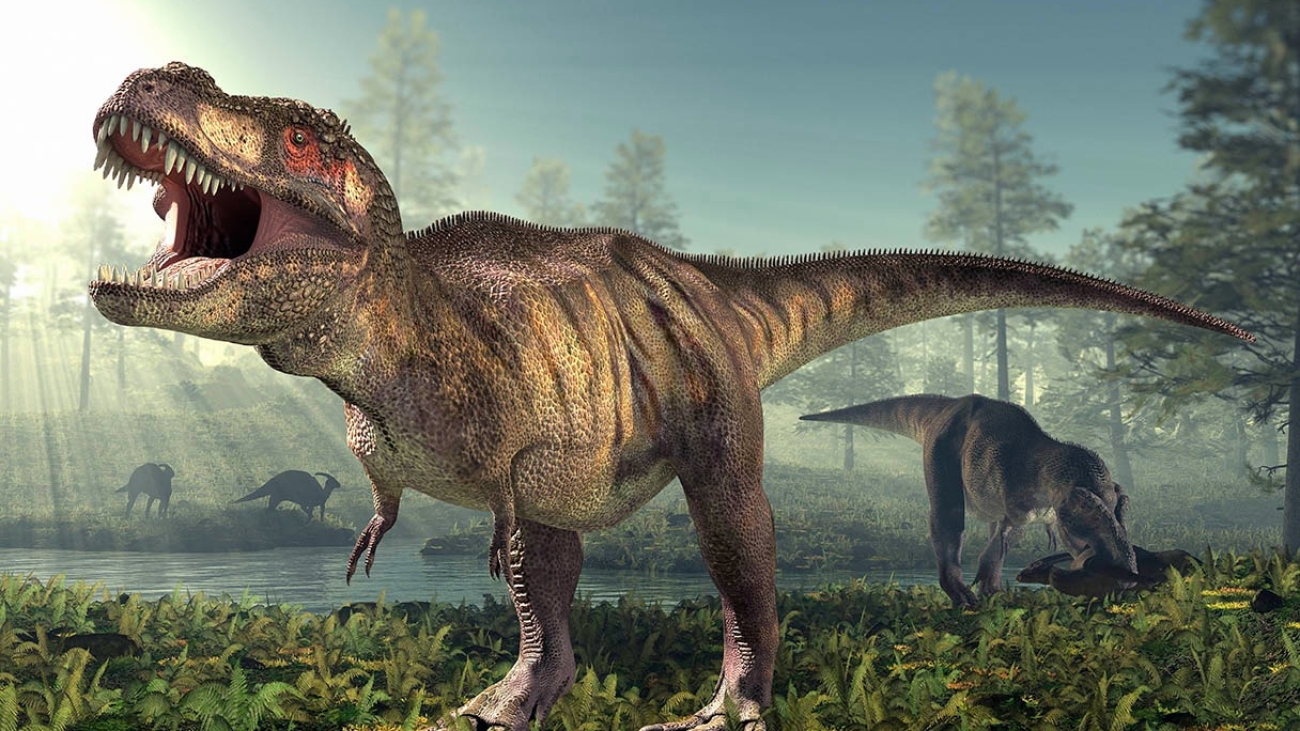A recent study has sparked controversy in the scientific community by suggesting that some dinosaurs may have been as intelligent as modern primates. The study, published in the journal Nature Ecology and Evolution, argues that certain dinosaurs had brains that were just as densely packed with neurons as those of modern primates, indicating that they may have been much smarter than previously thought.
The study examined the braincases of several dinosaurs, including the famous T. rex, and compared them to those of modern birds and crocodiles, which are considered to be the closest living relatives of dinosaurs. The researchers found that the braincases of some dinosaurs, particularly those of the raptors and the T. rex, were much more similar to those of primates than to those of birds and crocodiles.
The study’s authors argue that this suggests that these dinosaurs had brains that were just as densely packed with neurons as those of modern primates, indicating that they may have been much smarter than previously thought. This would mean that they could have achieved feats that were previously thought to be the exclusive domain of humans and other highly intelligent animals, such as using tools.
However, the study’s findings have been met with skepticism by many scientists. While it is true that the braincases of some dinosaurs were more similar to those of primates than to those of birds and crocodiles, this does not necessarily mean that they were as intelligent as modern primates.
One major issue with the study is that it is based on a relatively small sample of dinosaurs, and it is not clear how representative these fossils are of the entire dinosaur population. Additionally, scientists have long known that brain size is not necessarily indicative of intelligence. For example, elephants have much larger brains than humans, but they are not necessarily more intelligent.
Another concern is that the study’s authors did not take into account the fact that dinosaurs had different brain structures than modern animals, which could have affected their intelligence. For example, the T. rex had a large olfactory lobe, which would have been responsible for processing smells, but it had a small cerebrum, which is responsible for higher cognitive functions. This suggests that the T. rex may have been good at detecting smells, but not as good at tasks that require advanced problem-solving skills.
Despite these criticisms, the study’s authors argue that their findings are significant and deserve further investigation. They believe that by studying the brains of dinosaurs, we can gain a better understanding of the evolution of intelligence in animals and how it relates to brain structure.
In conclusion, while the study’s findings are intriguing and deserve further investigation, it is important to approach them with a healthy dose of skepticism. More research is needed to determine whether or not some dinosaurs were as brainy as modern primates. But one thing is for sure, the T. rex was a powerful predator that ruled the earth for million of years, and it’s fascinating to think about how it might have thought and acted.
